Regulations
Carcinogens found in kids' goods sold on Chinese apps; Temu under probe
AliExpress, Temu and Shein are under scrutiny amid rising complaints about fake or low-quality goods sold on the platforms
By Apr 08, 2024 (Gmt+09:00)
4
Min read
Most Read
LG Chem to sell water filter business to Glenwood PE for $692 million


KT&G eyes overseas M&A after rejecting activist fund's offer


Kyobo Life poised to buy Japan’s SBI Group-owned savings bank


StockX in merger talks with Naver’s online reseller Kream


Meritz backs half of ex-manager’s $210 mn hedge fund


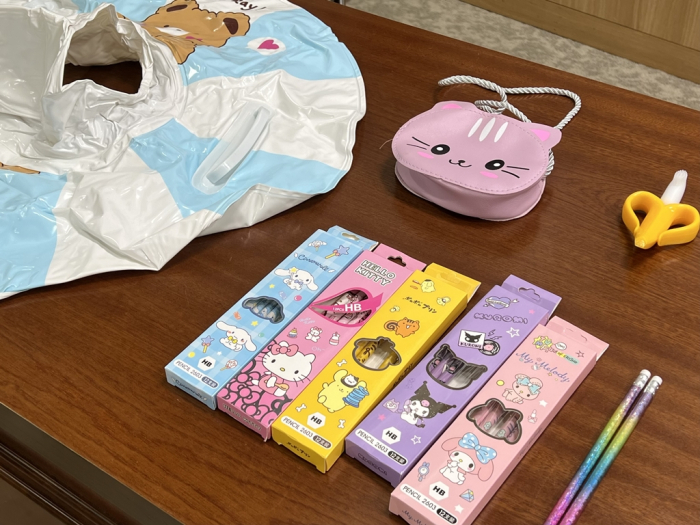
South Korea is looking into Chinese online shopping platforms as some products, including some for children, were found to contain cancer-causing substances, raising safety concerns about Chinese goods purchased online.
The Seoul Metropolitan Government on Monday released the results of its recent examination of 31 best-selling children’s goods and daily necessities sold on AliExpress, an online shopping app operated by Chinese tech giant Alibaba.
The government said eight of them, including a swimming float, a baby walker and two types of teethers, were found to contain hazardous substances far exceeding permitted levels.
Children’s leather bags, in particular, are found to have four types of phthalates, commonly used in plastic processing, with their amount surpassing the permitted levels by 55.6 times, the city government said.
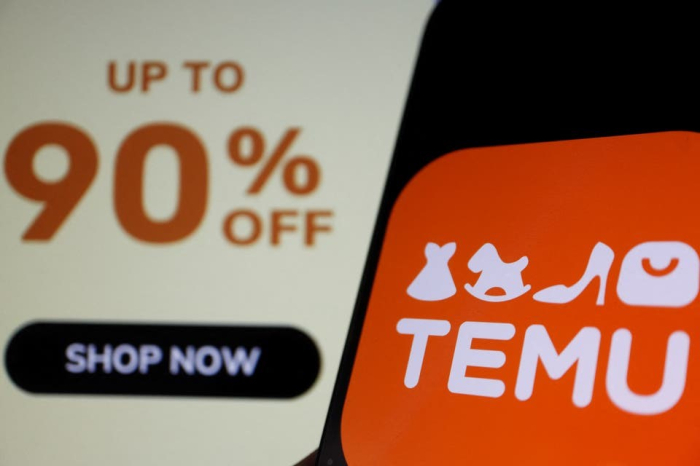
DEHP, one of the four phthalate plasticizers found in leather bags, is designated as a cancer-causing substance by the International Agency for Research on Cancer (IRAC) under the World Health Organization (WHO).
Phthalate-based plasticizers can cause infertility, according to the IRAC.
Some of the products at issue, including a swimming float, were found to have other safety risks – as it is much thinner than the minimum requirements set by the Korean government.
Two tested teethers were found to have design flaws that could lead to suffocation while one baby walker tested carried the risks of infants being jammed between cracked parts and injured, Seoul said.
The city government said it has sent letters to AliExpress, requesting information on sellers of those products sold on the Chinese platform.
A government official said the city will now look into three major Chinese platforms – AliExpress, Temu and fashion e-retailer Shein – regularly to examine the safety of products and the appropriateness of consumer protection measures.
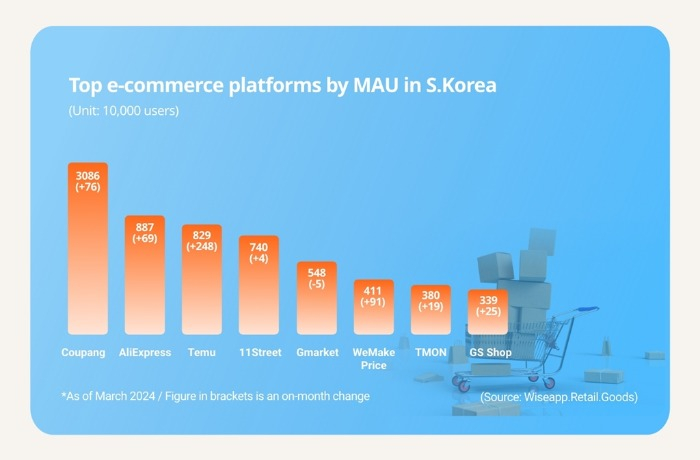
From the fourth week of this month, Seoul plans to make public the results of its weekly examinations, he said.
Separately, the city government said it will operate a consumer report center to receive complaints about fake goods or hazardous products.
If serious problems are found, Seoul will impose penalties or report them to police for further investigation, officials said.
EARRINGS CONTAINING CARCINOGENS 700 TIMES ABOVE LIMIT
On Sunday, the Korea Customs Service’s branch in Incheon, a port city that has the closest sea routes to China, said authorities found earrings and rings sold on AliExpress and Temu containing cadmium and lead far exceeding legal limits.
Of 404 items investigated, 96 goods, or 23.8% of the total, were found to contain as much as 700 times the legal limits of cadmium and lead, officials said.
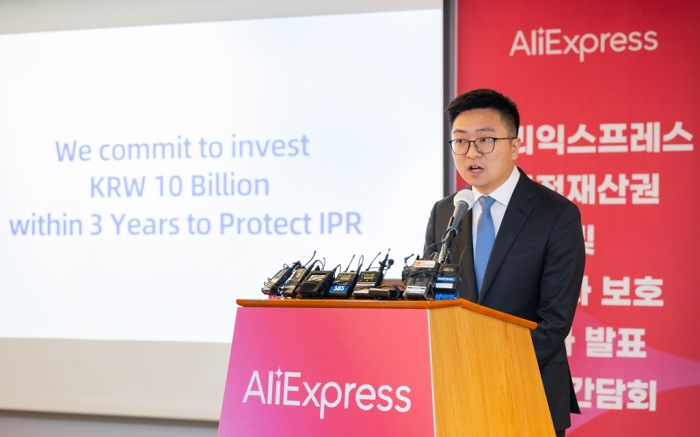
Cadmium and lead are cancer-causing substances, according to the IRAC.
Some necklaces, bracelets, anklets and hairpins were also found to contain carcinogens, the customs office said.
Authorities said tech-savvy Korean kids and young adults are exposed to “dirt cheap” goods on Chinese shopping apps, with some products sold as low as 44 cents apiece.
A customs official said it would call on AliExpress and Temu to stop selling problematic goods on their platforms.
TEMU UNDER ANTITRUST BODY’S INVESTIGATION
Korea’s Fair Trade Commission said on Monday it is investigating Temu, a popular Chinese discount e-commerce platform operated by PDD Holdings Inc., formerly Pinduoduo, over alleged unfair business practices, including false and exaggerated advertising.
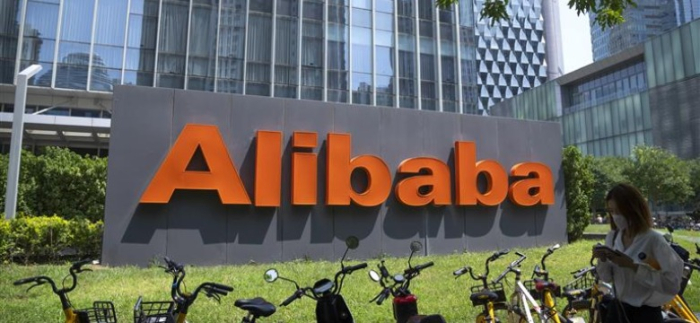
The antitrust body sent written enquires to Temu’s Korean representative to look into claims that the Chinese platform operator fooled consumers with fake goods or exaggerated advertisements, sources said.
In recent years, Chinese e-commerce giants have rapidly attracted Korean consumers to their online platforms with cheaper products and sometimes faster deliveries than Korean rivals such as Coupang, Naver Corp., 11Street, SSG.COM and Gmarket.
Offering sharply discounted goods and free returns, Chinese shopping platforms have often been the most frequently downloaded apps among Korean youth.
With the rise of their popularity, however, Korean authorities have begun looking into the appropriateness of Chinese apps’ personal information processing policies amid growing Korean consumers’ complaints about fake goods sold on their platforms.

Last month, the Korean government vowed to introduce a get-tough e-commerce policy on foreign platforms amid increasing consumer complaints and a lack of dispute settlements by online shopping mall operators – a move largely aimed at containing Chinese firms’ rapid expansion in Korea.
In 2022, China outpaced the US as the largest foreign online market for Koreans in terms of value. Koreans spent $1.7 billion buying goods online from China, up 32% on-year. That compared with a 15% decline to $1.6 billion in their spending on US e-commerce platforms, according to the Korea Customs Service.
In 2023, Chinese platforms accounted for 48.7% of Koreans’ online shopping while US online shopping malls took 27.5%, data showed.
Write to Kwang-Sik Lee and Hae-Ryon Choi at bumeran@hankyung.com
In-Soo Nam edited this article.
More to Read
-

-
 RegulationsSouth Korea gets tough with Chinese platforms AliExpress, Temu, Shein
RegulationsSouth Korea gets tough with Chinese platforms AliExpress, Temu, SheinMar 13, 2024 (Gmt+09:00)
3 Min read -
 E-commerceAliExpress sells top K-food maker’s products in S.Korea
E-commerceAliExpress sells top K-food maker’s products in S.KoreaMar 08, 2024 (Gmt+09:00)
3 Min read -
 E-commerceKorea probes AliExpress as Chinese e-commerce threat grows
E-commerceKorea probes AliExpress as Chinese e-commerce threat growsMar 07, 2024 (Gmt+09:00)
4 Min read -
 E-commerceAliExpress’ zero-commission offer jolts Coupang, Naver
E-commerceAliExpress’ zero-commission offer jolts Coupang, NaverJan 31, 2024 (Gmt+09:00)
2 Min read -
 E-commerceChina’s Temu challenges homegrown e-commerce platforms in Korea
E-commerceChina’s Temu challenges homegrown e-commerce platforms in KoreaOct 19, 2023 (Gmt+09:00)
3 Min read
Comment 0
LOG IN


